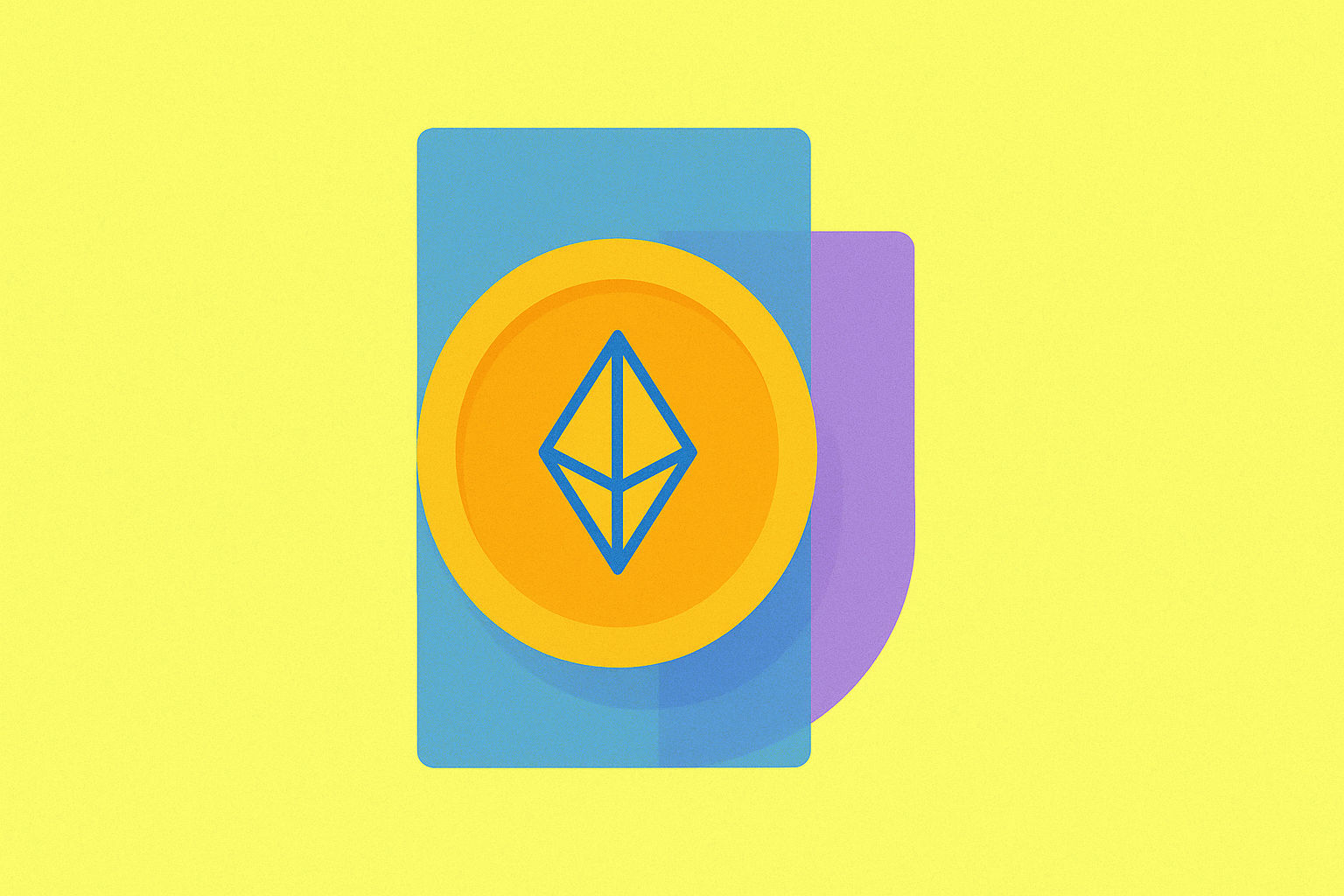Bitcoin ve Ethereum Arasında Seçim: Kripto Para Yatırımcılarına Yönelik Karşılaştırmalı Bir Rehber


Yatırım Kararı: Bitcoin mi Ethereum mu Almalısınız?
Tarihsel Kökenler ve Temel İlkeler
Bitcoin (BTC), 2009 yılında kripto paraların öncüsü olarak ortaya çıktı ve merkeziyetsiz yapısı ve kıtlığı sayesinde kısa sürede "dijital altın" olarak anılmaya başladı. Fiyatı, birkaç sentten on binlerce dolara yükseldi. Ethereum (ETH) ise 2015 yılında piyasaya sürülerek akıllı kontratlar ve merkeziyetsiz uygulamalar (dApp) için bir platform olmayı hedefledi; zincir üzerindeki uygulamaları daha çeşitli hale getirmeyi amaçladı.
Bitcoin’in arzı 21 milyon coin ile sabittir ve blok ödülleri yaklaşık her dört yılda bir yarıya iner; bu da kıtlığını güçlendirir. Ethereum ise ilk başta sabit bir tavan sunmazken, 2021’de EIP-1559 güncellemesiyle işlem ücretlerinin bir kısmının yakılmasını sağladı ve 2022’de Proof-of-Stake (PoS) sistemine geçen "Merge" sonrası ihraç oranı neredeyse deflasyonist bir seviyeye ulaştı.
Teknik ve Protokol Farkları
Bitcoin, işlemlerin doğrulanmasında madencilerin karmaşık matematiksel problemleri çözdüğü Proof-of-Work (PoW) konsensüsünü kullanır. Bu yöntem son derece güvenlidir ancak yüksek enerji gerektirir. Ethereum, Eylül 2022'de PoS'a geçerek enerji tüketimini %99'un üzerinde azaltmış ve ETH sahiplerine staking yoluyla pasif gelir elde etme olanağı sağlamıştır.
Bitcoin’de ortalama her 10 dakikada bir yeni blok üretilirken, Ethereum’da bloklar 12-15 saniyede bir oluşur. Bu, Ethereum’da daha yüksek işlem kapasitesi sağlar; ancak her iki ağda da yoğun dönemlerde tıkanıklık ve işlem ücreti artışları görülebilir.
Ekosistem ve Uygulama Alanları
Bitcoin, kurumlar ve bireysel yatırımcılar tarafından değer saklama aracı olarak tercih edilmektedir. Birçok şirket ve emeklilik fonu portföylerinde BTC’ye yer vermektedir. Farklı yatırım ürünleri, yatırımcıların özel anahtar yönetimi olmadan BTC’ye erişebilmesini mümkün kılar.
Ethereum, merkeziyetsiz finans (DeFi) uygulamaları, değiştirilemez tokenlar (NFT) ve blokzincir oyunlarından oluşan dinamik bir ekosisteme sahiptir. Geniş geliştirici topluluğu sürekli yeniliklerle yeni kullanım alanları oluşturur, mevcutları iyileştirir. Ölçeklenebilirlik sorunlarına çözüm olarak Layer-2 teknolojileri kullanılmaktadır.
Piyasa Performansı ve Yatırım Göstergeleri
Ekim 2025 itibarıyla Bitcoin’in fiyatı yaklaşık 128.000 dolar, Ethereum ise yaklaşık 3.200 dolardan işlem görmektedir. Her iki varlık da piyasaya çıktığından beri büyük bir büyüme göstermiştir; Bitcoin’in piyasa döngüleri yatırım dünyasında efsaneleşmiştir.
Her iki ağda da zincir üzerindeki metrikler aktif kullanım ve benimsemeyi göstermektedir. Bitcoin’in günlük aktif adres sayısı 1.3 milyon civarındayken, Ethereum’da DeFi ve NFT işlemleriyle günlük 1.5 milyonun üzerinde işlem gerçekleşmektedir.
Risk Faktörleri ve Volatilite Özellikleri
Geleneksel varlıklara kıyasla hâlâ volatil olsalar da, Bitcoin ve Ethereum’da zamanla oynaklık azalmıştır. Ekim 2025 itibarıyla Bitcoin’in 30 günlük gerçekleşen volatilitesi yaklaşık %1,6; Ethereum’un ise yaklaşık %2,2 seviyesindedir.
Düzenleyici belirsizlikler hâlâ endişe konusu olup, birçok ülkede kripto para regülasyonlarına dair tartışmalar sürmektedir. Ethereum ekosisteminde akıllı kontrat açıkları teknik risk oluşturur; geçmiş DeFi saldırıları buna örnektir.
Gelecek Beklentileri ve Yol Haritası
Bitcoin’in geliştirme planları; gizlilik artırma, Lightning Network’te hızlı mikro ödemelerin sağlanması ve sınırlı çapraz-zincir işlevselliği üzerine yoğunlaşmaktadır. Ethereum ise ölçeklenebilirliği artırmak için sharding teknolojisini hayata geçirmeye ve merkeziyetsiz uygulama ekosistemini büyütmeye odaklanmaktadır.
Sonuç
Bitcoin ve Ethereum, kripto para sektöründe kendilerine özgü değer önerileri sunar. Bitcoin, dijital değer saklama aracı olarak konumunu güçlendirirken, Ethereum programlanabilir finans ve merkeziyetsiz uygulama alanında liderliğini sürdürmektedir. Yatırımcılar, risk toleransını, yatırım hedeflerini ve her varlığın kendine özgü özelliklerini değerlendirerek karar vermelidir. Kripto piyasası olgunlaştıkça her iki ağ da finans ve teknoloji dünyasının geleceğinde önemli roller üstlenecektir.
Sıkça Sorulan Sorular
Bitcoin ve Ethereum arasındaki fark nedir?
Bitcoin esas olarak dijital işlemler için kullanılırken, Ethereum akıllı kontratlar ve merkeziyetsiz uygulamaları mümkün kılar. Bitcoin dijital altın, Ethereum ise bir blokzincir platformudur.
BTC ne kadar süre daha çıkarılabilir?
BTC madenciliği, tüm 21 milyon coin çıkarılana kadar yaklaşık 2140 yılına kadar devam edecek. Madencilik ödülleri her 4 yılda bir yarıya iner, sonrasında ödüller işlem ücretlerine dönüşür.
Ethereum’u kim çıkardı?
Ethereum, Vitalik Buterin tarafından geliştirilmiş ve 2015’te piyasaya sürülmüştür. Bitcoin’in işlevselliğini genişletir ve akıllı kontratları destekler.

Raoul Pal: Kripto'nun Geleceği Üzerine Büyük Bahis Oynayan Makro Dahisi

bir kripto coin bir ETF aldığında..

Helal Kripto Listesi: 2025'te Şeriat Uygun Coin ve Token'lar

Wrapped Bitcoin (WBTC) iyi bir yatırım mı?: Bu Bitcoin destekli tokenın avantajları ve dezavantajları üzerine bir değerlendirme

ALEX vs SNX: Merkeziyetsiz Türev Platformları Arasındaki Rekabet

2025'e kadar AAVE fiyatı nasıl şekillenecek: DeFi liderinin büyüme potansiyeli

Tomarket Daily Combo 23 Aralık 2025

Marina Protokol Günlük Quiz Cevabı 23 Aralık 2025

Spur Protocol Günlük Quiz Cevabı Bugün 23 Aralık 2025

MAVIA nedir: Mobil Artırılmış Görsel Zekâ Mimarisi Hakkında Kapsamlı Bir Rehber

TRADE Nedir: Uluslararası Ticaret ve Ekonomik Değişimi Anlama Kapsamlı Rehberi







